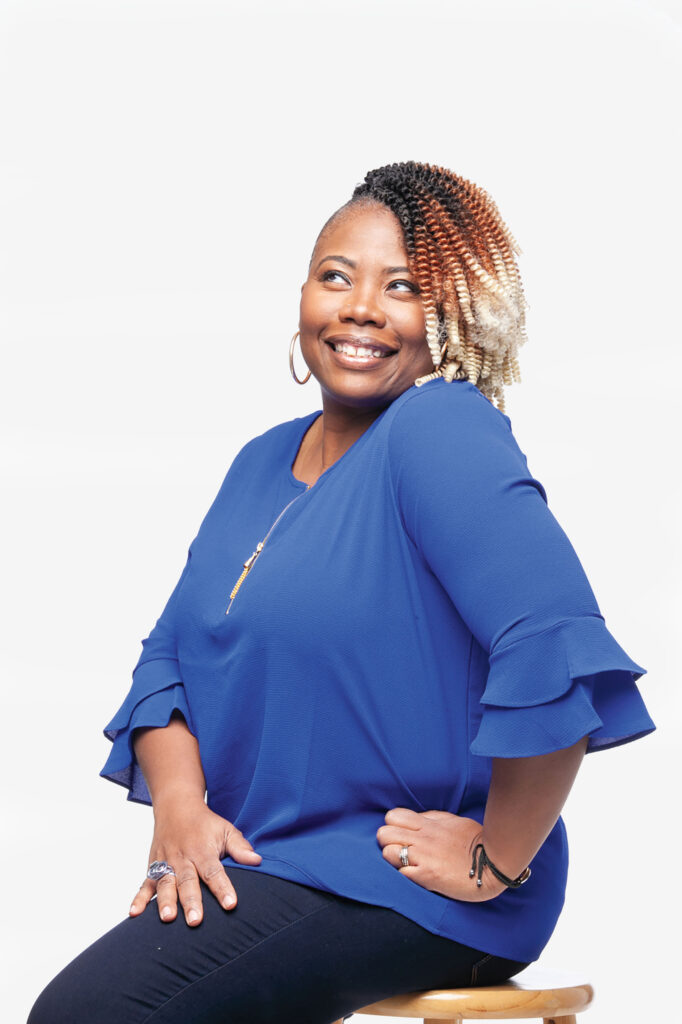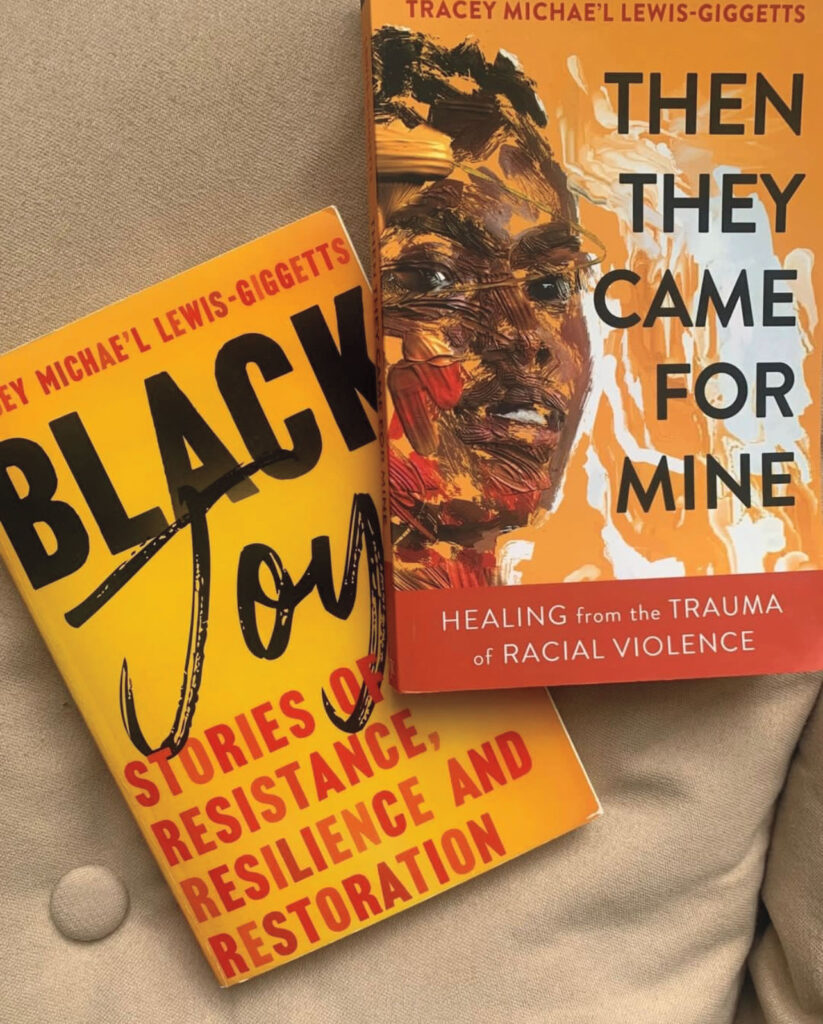Ode to Joy
Tracey Michae’l Lewis-Giggetts, MFA’14 (Flor)
By Mary Ann Bautista

(Photo: Allen Johnson)
Tracey Michae’l Lewis-Giggetts, MFA’14 (Flor), says “joy is our birthright.” She discovered her joy on a literary and personal journey — a quest that began from a place of grief and pain.
“I lost a family member to racial gun violence and had experienced some hostility and pushback on some of the DEI [diversity, equity and inclusion] and social justice work I was doing on the campus where I was teaching,” she says. Exhausted and burdened with health challenges, Lewis-Giggetts found herself facing a question from her therapist: What does joy feel like in your body? “I couldn’t answer her,” she says, “so I began to do the work of uncovering joy for myself.”
She came to understand that joy is always inside of us. “It might be hard to access because rage, grief and exhaustion are bigger in your body,” she says. “But if you make room for joy, it will show up.” She also believes her ancestors passed down ways of living in joy despite their great pain and trauma. “As I began to think about what Black joy meant, how it shows up and how we wield it in the face of racism and white supremacy, my book [Black Joy: Stories of Resistance, Resilience, and Restoration] was born.”
The book evolved from an essay Lewis-Giggetts wrote for The Washington Post in 2020 about dancing happily with her daughter, even amid sorrow. “My daughter is the freest person I know.”

“Joy and healing go hand in hand,” says Tracey Michae’l Lewis-Giggetts, MFA’14 (Flor), author of Black Joy: Stories of Resistance, Resilience, and Restoration and Then They Came For Mine: Healing from the Trauma of Racial Violence.
The resulting book is a 288-page collection of intimate and powerful stories touching on the universal themes of love, family and loss. The NAACP (National Association for the Advancement of Colored People) recognized Black Joy with its 2023 Image Award for Outstanding Literary Work – Instructional.
Receiving the NAACP award was “particularly exciting and gratifying because I wrote Black Joy for Black people,” she says.
“It was the most liberating experience I’ve ever had on the page and for this storied organization that has represented us for more than 100 years to recognize my work … it felt like a ‘well-done’ from my ancestors.”
Building on that momentum, a guided journal for Black Joy is forthcoming in 2024. “My latest book, Then They Came for Mine: Healing from the Trauma of Racial Violence, was released last year, so I look forward to traveling and speaking more about the need for reckoning as it relates to racial violence, especially in this country,” she says.
Writing will always be the cornerstone of Lewis-Giggetts’ creative endeavors. “I want my voice to be heard,” she says, “and storytelling is a way to have a voice.” FDU’s MFA in creative writing program and its residency at Wroxton College harnessed the power of that voice. “It offered me the opportunity to expand on what I understood to be the possibilities for my writing, and to learn from a myriad of perspectives,” she adds.
Lewis-Giggetts is currently exploring working in film and television. In the meantime, the promise that a blank page holds continues to excite her. “The possibility of a story thrills me,” she says. “The idea that I can create something that might resonate with a reader — and maybe even bring joy — will always be fascinating.”
NATURE LOVER
“I love the water. We moved to be close to the beach. I also love to garden. Touching the earth is a great de-stresser for me.”
HEALING SPACE
She hosts the podcast “HeARTtalk with Tracey Michae’l,” and is founder of HeARTspace, a community that helps people who have experienced trauma heal through storytelling and the arts.
DAILY JOYS
“Write joy into your day — whether it’s taking a dance break or watching a comedy special.”
HAPPY TOGETHER
“I believe in the power of community care — where joy thrives — and I saw that first with the Black women I’ve known over the course of my life. Even in the darkest moments, they carry a tenderness that too often goes unnoticed.”